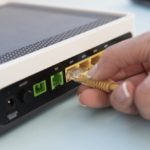
Speed Test App
Tips and Guides - 3
Is your ISP throttling your internet speed?
In today’s fast-paced world, having a reliable and fast internet connection is essential. However, even with the best internet service providers and equipment, you may still experience slow internet speeds or connection issues. In some cases, this may be due to throttling, a practice where your internet service provider intentionally slows down your internet speed. In this article, we will discuss the signs of slow internet speed, the differences between internet traffic jams and throttling, and the common reasons why your ISP may be throttling your internet speed. By understanding these factors, you can take steps to improve your internet speed and ensure that you are getting the service you are paying for.
– Sponsored Links –
Understanding the Difference between Internet Traffic Jam and Throttling
Internet traffic jam and throttling are two different concepts that can affect internet speed, and it’s important to understand the difference between them.
Internet traffic jam occurs when a large number of people are using the internet simultaneously, causing congestion and slowing down the network. This can happen during peak usage hours or at events where there are many people using the same network. Internet traffic jam is usually temporary and can be resolved by upgrading the network infrastructure or reducing the number of users on the network.
On the other hand, internet throttling occurs when an internet service provider intentionally slows down the internet speed for certain users or specific types of online activities. This can happen for various reasons, such as to manage network congestion, prioritize certain types of traffic, or limit the amount of data usage for customers who have exceeded their data caps. Internet throttling can have a significant impact on internet speed and can be difficult to detect.
It’s important to understand the difference between these two concepts, as internet traffic jam is usually temporary and can be resolved through network upgrades or reducing the number of users, while internet throttling may be intentional and require further investigation or negotiation with the internet service provider.
– Sponsored Links –
– Sponsored Links –
Common Reasons Why Your ISP May Be Throttling Your Internet Speed
Here are some common reasons why your ISP may be throttling your internet speed:
Network Congestion: When there are too many users trying to access the internet at the same time, your ISP may throttle your internet speed to avoid network congestion.
Heavy Data Usage: If you use a lot of data on a regular basis, your ISP may throttle your internet speed to reduce your data usage and free up network resources for other users.
Torrenting or Peer-to-Peer File Sharing: ISPs often throttle internet speed for users who engage in torrenting or peer-to-peer file sharing as these activities require a lot of bandwidth and can slow down the network for other users.
Type of Plan: If you are on an unlimited data plan, your ISP may throttle your internet speed after a certain amount of data usage as part of their fair usage policy.
Time of Day: Some ISPs may throttle your internet speed during peak hours when there is high network traffic.
It’s worth noting that not all ISP throttling is nefarious – sometimes it’s necessary to ensure the stability and reliability of the network for all users. However, if you suspect that your ISP is throttling your internet speed unfairly, there are steps you can take to address the issue.
– Sponsored Links –
Can You Detect Throttling Using a Speed Test?
If you suspect that your ISP is throttling your internet speed, it is important to understand the potential impact on your online activities and take steps to address the issue. Throttling can lead to slower streaming or download speeds, longer load times for web pages, and increased buffering during online video playback.
To detect if your ISP is throttling your internet speed, you can run a speed test when you suspect the throttling is occurring and compare the results to previous speed tests. If you notice a significant decrease in speed during specific times or for certain types of traffic, this could be a sign of throttling. You can also try using a virtual private network (VPN) to mask your online activities from your ISP and potentially bypass any throttling.
It is important to note that not all decreases in internet speed are due to throttling, and there can be other factors such as network congestion, outdated equipment, or poor signal strength. However, if you suspect throttling, it is important to investigate the issue and take appropriate action to ensure that you are getting the internet speeds you are paying for.
– Sponsored Links –
– Sponsored Links –
Table of Contents
– Sponsored Links –
– Sponsored Links –
– Sponsored Links –



